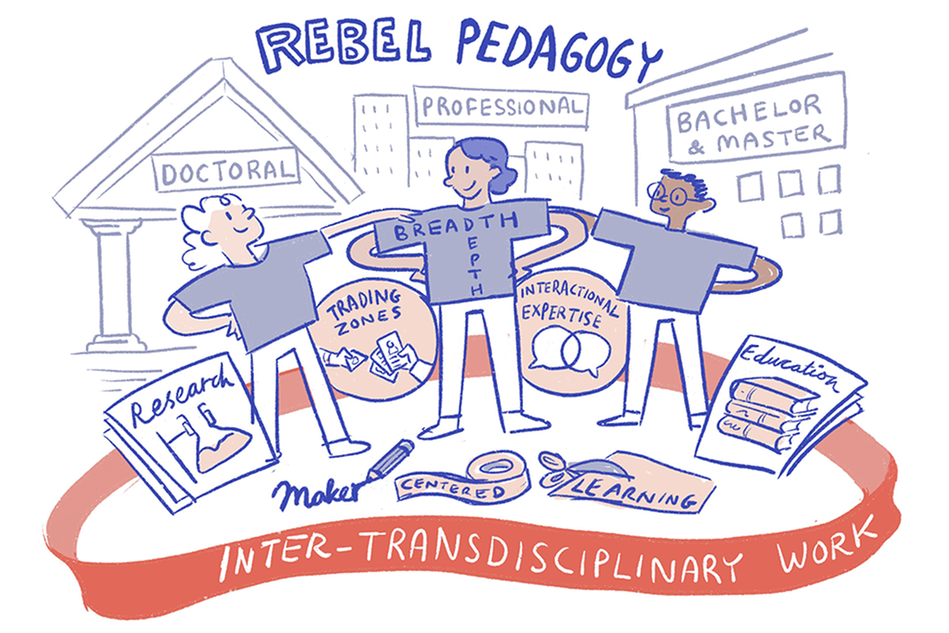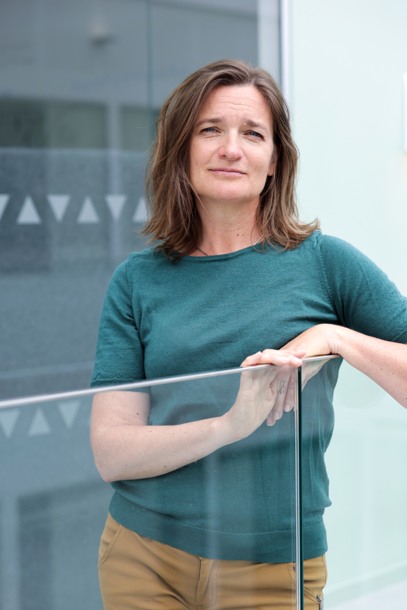Halmstad University establishes new research programme on socially sustainable smart cities
Halmstad University is establishing a new research programme within focus area Smart Cities and Communities. The programme, called REBEL, is part of Halmstad University’s investment in multidisciplinary research programmes to strengthen the University’s profile, and takes a design ethnographic perspective on smart and sustainable urban development.
“I am pleased to announce the establishment of another research programme in Smart Cities and Communities. REBEL is an exciting and innovative research programme that will contribute to our innovative institution with new research.”
Vice-Chancellor Susanna Öhman

The research programme REBEL is about how sustainable smart cities and communities can be promoted in a responsible way that takes social and local values and know-how into account.
The research programme REBEL (Re-Imagining Future Smart Living – beyond the Living Lab) is about how socially and environmentally sustainable smart cities and communities can be promoted in a participatory and responsible way that takes social and local values and know-how into account.
“Significant efforts have been made to develop ideas for how we can make cities smarter and more sustainable with the help of AI-driven technology. There is an over-reliance on simple connections between smarter technology and improved quality of life. REBEL is designed to study, experiment and design together with those who are actually affected by technology to find new ways for socially sustainable long-term change,” says Vaike Fors, Professor of Design Ethnography and Research Programme Leader.
The vision of the programme is a world where the development of smart technology takes place in a responsible, ethical, and socially relevant way. Through locally based Living Labs, the idea is that REBEL will promote co-created design concepts for the sustainable living of the future.
Multidisciplinary research together with society
“The ambition in REBEL is to develop Living Labs – local collaboration and development arenas – by building networks with local actors, stakeholders from the public and business sectors, as well as the people who live on the site. In the labs, we co-create products, services, and experiences for the future with the support of new technologies. The starting point is always the values, know-how and social life of the population and the environment. We are already involved in several such Living Labs in Sweden, Europe and Australia, and we plan to create more, preferably locally in Halmstad and Halland in collaboration with High Five Innovation Arena and Fab Lab at the University,” says Vaike Fors.

Vaike Fors. Photo: Anna-Frida Agardson
REBEL engages several of Halmstad University’s well-established research groups, including in design ethnography, service design, green transition, AI and smart materials, norm-critical design and sociology, humanities, and innovation.
“We want to build bridges and inspire multidisciplinary research in collaboration with the surrounding society. We explore and evaluate different design concepts for future habitats with a focus on physical, social and cultural values. To achieve this, we need to work together across scientific disciplines such as social sciences, design and engineering. In this way, together we contribute to a more sustainable, responsible development of smart cities and communities,” concludes Vaike Fors.
“The research programmes form the foundation of our focus areas within research at Halmstad University, and today I am pleased to announce the establishment of another research programme in Smart Cities and Communities. REBEL is an exciting and innovative research programme that will contribute to our innovative institution with new research,” says Vice-Chancellor Susanna Öhman..
The decision to establish the research programme has been made by Vice-Chancellor Susanna Öhman following external assessment and on the recommendation of the University’s Research and Education Board.
Text: Christa Amnell

